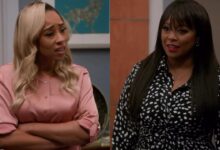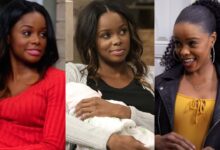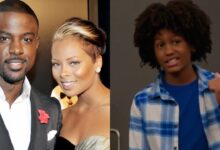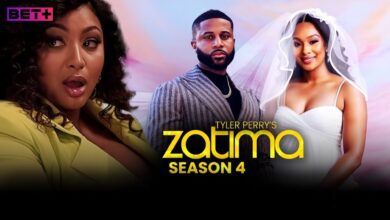Judge Joe Brown Says That Tyler Perry Is Part of The Industry’s Emasculation of Manhood
Okay, so this clip has been circulating online — it’s of Judge Joe Brown on The Art of Dialogue YouTube channel. Now, for those unfamiliar, it’s an interview-style platform, often compared to Vlad TV in terms of its format. This particular segment is from an unreleased part of an older interview that originally gained traction during the lead-up to the 2024 election.
Recently, The Art of Dialogue has been releasing never-before-seen clips, and one that’s been making the rounds — especially on The Shade Room — is Judge Joe Brown’s comments about Tyler Perry. Specifically, his thoughts on Perry’s contribution to the emasculation of Black manhood, and whether Perry “likes manhood” at all. I’m not going to deep-dive into that entire conversation, but I do want to address the core topic.
Now, I always encourage people to watch the full clip for context before forming an opinion. It’s about five and a half minutes long — watch it, then come back here for my thoughts. That said, I think the conversation raises valid points. Judge Joe didn’t only single out Tyler. He talked about how the entertainment industry as a whole — producers, writers, and directors — plays a part in diminishing the presence of strong male characters in media.
And honestly? I had to sit and think about it. Looking at Tyler’s content from the Viacom/BET era to now, it’s really difficult to identify even five solid, respectful, strong Black male characters. More often than not, the men in his shows are villains, emotionally unavailable, unfaithful, lazy, or outright toxic. Meanwhile, the women are often portrayed as victims or morally superior — always right, while the men are always wrong.
That brings me to Divorce in the Black — which I’ll do a separate video about. But it’s worth noting how much backlash that show has gotten before it even airs. It’s dropping June 10th on BET+, and already fans are saying: “Here we go again, another Tyler Perry show with bitter Black women and villainous men.” The common thread? No accountability, recycled tropes, and the same tired gender dynamics.
But like Judge Joe Brown said, this isn’t just a Tyler Perry thing — it reflects a broader industry trend. Someone in the comments mentioned The Equalizer, with Queen Latifah in a traditionally male role, and how media constantly flips the gender script in ways that feel forced or unrealistic. Another good example? Disney’s live-action remakes. We’ve seen beloved princesses turn into action heroines overnight — and audiences aren’t always buying it. Snow White reportedly flopped so badly, Disney is halting future live-action projects that aren’t already in development. (I’m still holding out for Lilo & Stitch, though. I love Stitch — that’s non-negotiable.)
Anyway, back to Tyler Perry. If you’ve followed my Beyond the Gates content on my backup channel, you’ll know I’ve praised the way characters like Martin are written — especially how he’s been trying to connect with his half-sister Eva. His backstory about coming out in high school and feeling like an outcast added emotional depth. He’s not defined solely by his sexuality — he’s a person first. A parent. A brother. A man with layers.
Compare that to Tyler Perry productions, where gay characters often feel like caricatures — flamboyant, loud, antagonistic, and often played for laughs. Many viewers from the LGBTQ+ community have commented on how uncomfortable or offensive they find characters like Maurice from Sistas, or some portrayals in The Haves and the Have Nots. They say: “This isn’t who we are. It’s a mockery.”
And that’s where the contradiction lies. Tyler publicly supports the LGBTQ+ community, yet the portrayals in his work sometimes feel like they’re undermining that support. It’s frustrating.
Let me be clear: This isn’t about discrediting Tyler Perry’s accomplishments. He’s done a lot for Black entertainment and kept a ton of Black actors and crew employed. That’s huge. But when we look at how manhood — especially Black manhood — is portrayed in much of his content, it’s hard to ignore the damage being done.
I will say, I did appreciate Bruh. For once, we got a show centered around four straight Black men navigating life. It was refreshing. And yet, that show was brushed aside, making way for even more female-driven stories where the male characters are reduced to cheaters, liars, or fools. Even Greg in Bruh got caught in a weird space with the trans storyline.
So yes, to some degree, I agree with Judge Joe Brown. His words sparked an important conversation, one that I think needs to continue. We can support a creator’s success while still holding them accountable for how their storytelling affects the community.
Let me know what you think in the comments below. Like, subscribe, and I’ll catch you in the next video.





